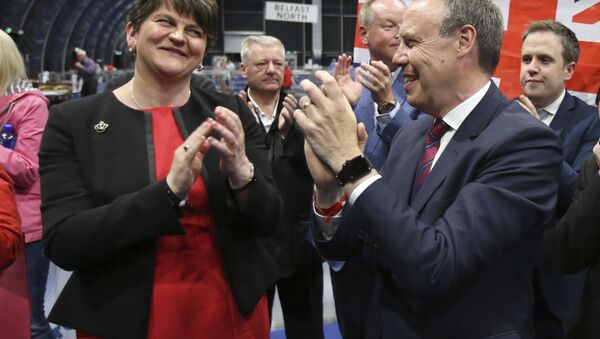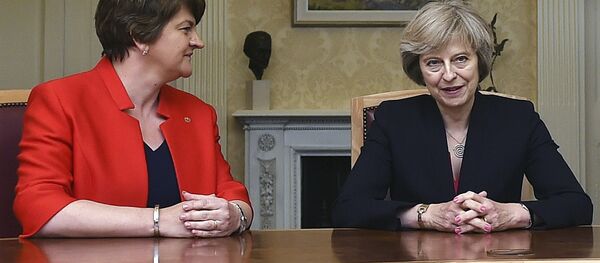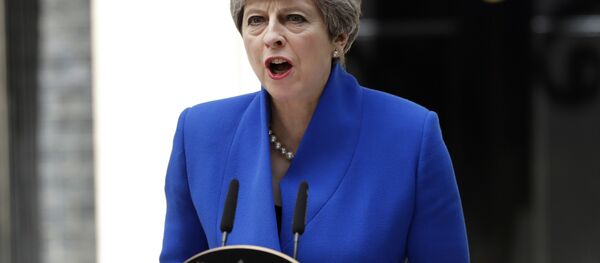Making the fatal mistake of approaching her campaign in the manner of a woman preparing for a coronation rather than an election, Theresa May now finds herself grievously weakened as she prepares to enter the UK's all-important negotiations with the EU to set the terms of the country's exit from the union, commonly known as Brexit.
Indeed having lost her parliamentary majority, vital in order to get her policies voted into legislation, the Prime Minister has taken the unprecedented step of reaching out to the hard right Democratic Unionist Party (DUP) in Northern Ireland with the offer of a pact in order to salvage both her parliamentary majority and, with it, political leadership at such a critical time in the country's history.

When I describe the DUP as being "hard right" I tell no lie. In point of act, the DUP are so far to the right of the UK political spectrum that even using binoculars you would struggle to locate them. Moreover, in what has to count as an example of naked hypocrisy, the DUP's historic links to loyalist paramilitary figures and organizations in the Six Counties — in other words terrorists — sits at odds with the intemperate clamor unleashed by the conservatives and their media supporters over Corbyn's alleged support for the IRA during the very same the conflict in Northern Ireland in which those aforementioned loyalist paramilitary groups were also engaged.
In what can only be described as an exercise in unedifying desperation to bolster her authority, Theresa May has gone where no previous Prime Minister has gone before in risking the Northern Ireland Peace Process by elevating the DUP to a position of power and influence. In the process she has chosen political expediency in the short term for the wider national interest in the longer term.
What Theresa May and her team have clearly overlooked, perhaps purposely, is that an absence of conflict is not necessarily the same thing as peace. In the North of Ireland, also known as the Six Counties, the fault lines of religious sectarianism and communal enmity are reflected in the abundance of so-called "peace lines" — in other words separation barriers and walls — keeping Catholic and Protestant communities apart. They constitute a shameful legacy of British colonialism, with its emphasis on the ethos of divide and rule — divide et impera as the Romans, who devised the concept, referred to it in Latin. As anyone who's studied Irish history knows, it is a legacy that has scarred this part of the world over centuries.
Theresa May's government is now on course to go down as one of the most shambolic in British history, with no answers to the ever-deepening crisis it has brought upon itself with its incompetent and inept handling of Brexit. In the run-up to the start of negotiations with her EU partners to agree the terms of the UK's departure, May has embraced a confrontational stance in obeisance to the anti-Europe wing of her own party and an anti-Europe right-wing press for whom putting Johnny Foreigner in his rightful place is long overdue.
Yet to listen to various pro-Brexit voices in May's government over the past few months, you'd think the UK had been doing its European partners a favor by deigning to be in the EU all these years, rather than having benefited from that membership. Their arrogance is a product of cultural values that have been distorted by a legacy of colonial and imperial grandeur, responsible for them preferring the illusory comforts of past glories instead of grappling with the challenges of the here and now.
Theresa May is now, in leadership terms, an empty coat — a Prime Minister who is in office but by no means in power. Her dalliance with the DUP, an extreme fringe party who only returned 10 MPs to office at the recent election, confirms it.
The views expressed in this article are solely those of the author and do not necessarily reflect the official position of Sputnik.




